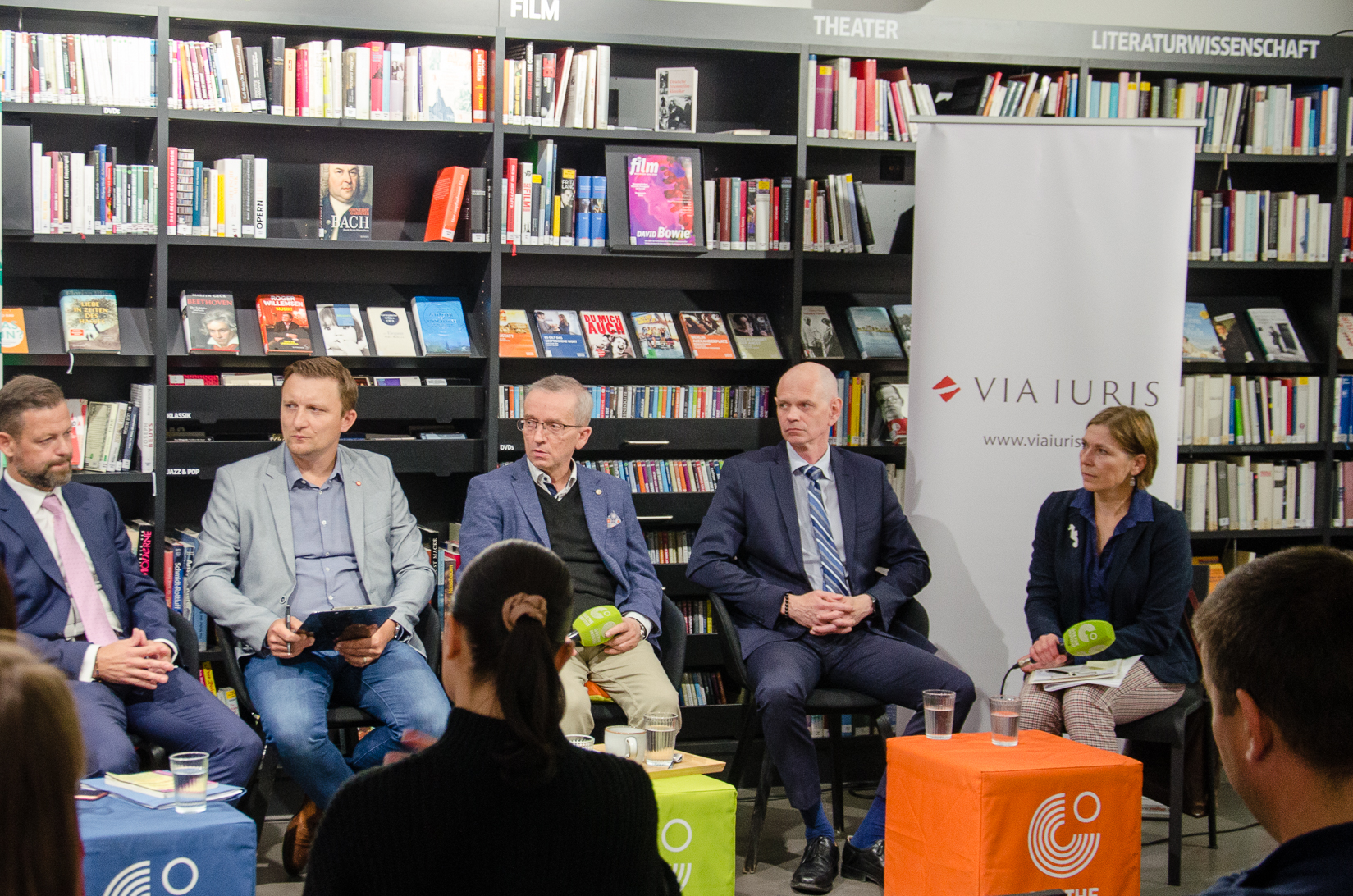LEFT THEIR MARK – VIA IURIS
26. May 2023
Justice is a long distance race
A long-standing problem in Slovakia is that a record number of people do not trust the judiciary. Compared to the EU average of around 45%, the situation in Slovakia is alarming, with more than 70% of people distrusting the judiciary. By contrast, in Austria, Denmark and Finland, public confidence in the independence of the domestic judiciary is over 80%.

That is why we at VIA IURIS have long been concerned with ways to improve the functioning of judicial institutions and bodies and thus contribute to increasing public confidence. The public’s indignation grew even more in 2019-2020, when the police uncovered a number of corruption scandals of judges. Fighting corruption and restoring trust in the rule of law are also among the mainstays of social discourse, including in the run-up to elections or in the government’s post-election programme statement.
Already before the elections, amendments to the functioning of the prosecutor’s office were being prepared, in particular with regard to the status of the Prosecutor General, the Special Prosecutor, the Council of Prosecutors or the selection of new prosecutors. Subsequently, the government pushed through a major amendment to the Constitution (one of the most significant in terms of its content and scope) and related amendments to the laws on the judiciary, the prosecutor’s office, the Judicial Council and the Constitutional Court. One of the outcomes was the establishment of a new court – the Supreme Administrative Court of the Slovak Republic (SAC SR).

VIA IURIS entered these processes by implementing the project “Pillars of the Rule of Law”, which aimed to focus on key institutions (the Judicial Council, the Prosecutor’s Office, the Constitutional Court) and processes (selection procedures in the judiciary, the disciplinary judiciary) that also affect the overall public perception of the justice system. In addition to analytical outputs, the project has created space for such (at first sight boring but very essential) grunt work as monitoring the meetings of the Judicial Council or monitoring the laws debated by the government and parliament. Analytical work, digging into data and monitoring the activities of public institutions is a prerequisite for the quality work of professional and watchdog organisations such as VIA IURIS to be able to propose and advocate for systemic changes.
Communication with the public on rule of law issues is equally important and is also a tool to support advocacy activities and push for systemic change. As part of the implementation of the project, we have also sought to publicly highlight many aspects of the institutions and processes of the rule of law. In particular, we focused on the election of the Prosecutor General and the Special Prosecutor, and we closely monitored the selection of judges and magistrates for the Supreme Administrative Court. On the topic of the use of the most notorious section in Slovakia – Section 363 of the Criminal Procedure Code – we also used public pressure and interest in the topic to collect almost 20,000 signatures in the summer of 2022.
The Pillars of the Rule of Law project has contributed to our ability to create the conditions for improving the functioning of institutions that are key to delivering justice to every single person in this country, and this is our core value and goal at VIA IURIS.
